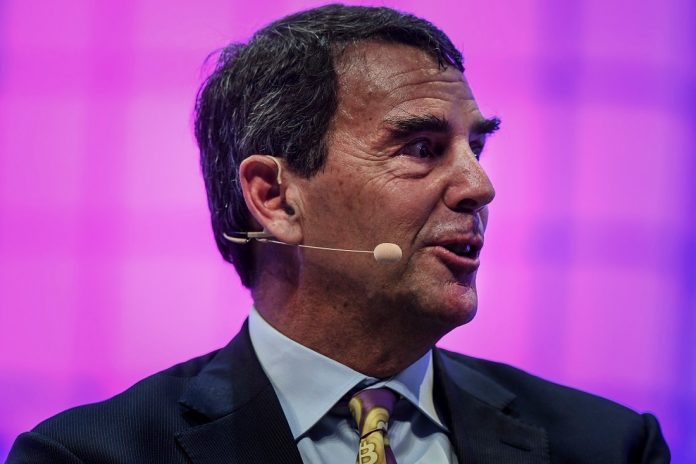JEDDAH: Tim Draper is a true Silicon Valley legend whose venture capital funds have propelled household tech names such as Skype, Hotmail, Tesla, Twitter, DocuSign and SpaceX.
Draper, an early and vocal proponent of bitcoin, blockchain and artificial intelligence, also predicted the rise of Silicon Valley and, later, China’s emergence as an economic powerhouse.
So where will the pioneering investor put his faith next? The answer is Saudi Arabia and its future as an entrepreneurial hub for the wider region.
“I’m really excited when I go there,” he said during a virtual fireside chat as part of a webinar organized by Wa’ed, Saudi Aramco’s entrepreneurship arm, and Startup Grind, the world’s largest community of startups, founders, innovators and creators
“I’m a little envious because I had the chance to do that here in the Silicon Valley boom. And then I did it again in China when it boomed. I feel like now it’s time for the MENA region to boom,” he added.
During his talk, the 62-year-old said he believed the Kingdom needs to focus on “trust and freedom.”
“Rooting out corruption sent a great message to the rest of the country and the world,” he said.
On a micro level, Draper advised entrepreneurs to constantly monitor technological advances and keep up to date with fast-moving advances, such as bitcoin, blockchain and smart contracts reshaping the banking, accounting and the legal sectors.
When it came to offering advice, he urged entrepreneurs in the Kingdom to “just do it.” Starting a business may be risky and, in his words, “the first one probably won’t work out,” but failure can help to build knowledge and experience.
“Start by doing two things: Sell to the region, because they will be more forgiving, but always have an eye on being the global leader,” he said.
Draper’s other priority was to celebrate Saudi women in entrepreneurship and to encourage more women to enter the business world.
The venture capitalist established his own university in California in 2012 to teach entrepreneurship. Draper University offers programs to boost innovation, and recently the pioneer has been surprised by the influx of Saudi students, “mostly women.”
“The countries that are inspired by coming to Draper University are generally the ones going through significant change for the better,” Draper said.
“We were so impressed with the number and the quality of women who came to Draper University and how tough they were. (Their toughness and spirit) will serve them well in the entrepreneurial world,” he added.
Countries that welcome change and freedom are the best for investing money, Draper said. “The change is so fundamental. People are so excited about the opportunities that are coming out of the region.”
Foundations like MiSK, a non-profit foundation established by Saudi Crown Prince Mohammad bin Salman in 2011, have helped students travel to the university to study.
Draper University’s program puts students through trials such as hackathons, where they are faced with challenges and asked to think of solutions. Eventually, trainees can pitch their ideas to investors and possibly kickstart their own projects.
Wa’ed CEO Wassim Basrawi told Arab News he was thrilled at Draper’s willingness to share his venture capital expertise with the next generation of business people in the Kingdom.
“We are excited to hear that one of the world’s foremost venture capitalists shares our enthusiasm for the Saudi entrepreneurial ecosystem, which statistics show is one of the fastest-growing and most vibrant in the world,” Basrawi said.
“His bold (dynamic) assessment of the Saudi startup market confirms what we have been seeing for a time now at Wa’ed, where we are also registering a sharp increase in entrepreneurial energy in the Kingdom,” he added.
Wa’ed was established by Saudi Aramco in 2011 and is one of the largest institutional venture capital investors in Saudi-based startups, offering support through mentorships, loans and incubation.

Saudi Interior Ministry high-tech services highlighted Focus: Tech’s antitrust woes and money flowing east

